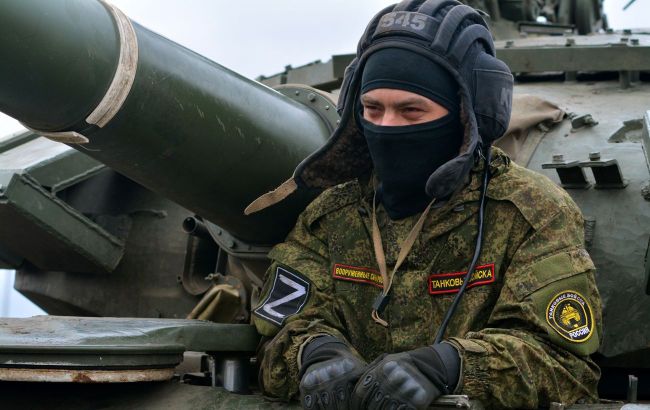Russian Armed Forces change their command, control system in Ukraine - ISW report
 Russian occupiers in Ukraine are changing their command and control system for their forces (photo: Getty Images)
Russian occupiers in Ukraine are changing their command and control system for their forces (photo: Getty Images)
Russian occupiers are changing their command and control system and trying to intensify their efforts to implement a doctrine of fire. They are adapting the deployment of electronic warfare systems. However, the enemy continues to face leadership problems within its units, reports analysts from the Institute for the Study of War (ISW).
In the report, it is mentioned that Russian occupiers have made significant changes to their command and control systems in an attempt to protect their command infrastructure and improve information exchange. However, the deployment of Russian forces likely continues to pose challenges to horizontal integration.
According to a statement by Margarita Konaeva, Deputy Director for Analysis at the Center for Security and New Technology (CSET), and Owen Daniels, a research fellow at CSET, on September 6, Russian forces moved their headquarters beyond the reach of most of Ukraine's strike systems and placed advanced command posts further underground and in well-protected positions.
Experts note that it remains unclear whether the interveners used this more protected command infrastructure in all the occupied areas in Ukraine and to what extent these defensive efforts hindered the ongoing Ukrainian campaign in targeting such objects.
As stated by Konaeva and Daniels, Russian forces have improved communication between command posts and units on the front lines by laying field cables and using more secure radio communication.
The Royal United Services Institute (RUSI) stated on September 4 that occupiers are also trying to enhance signals through wider use of app-based C2 (Command and Control) services that require less preparation.
However, Konaeva and Daniels point out that Russian soldiers, as before, often transmit confidential information through unprotected channels.
Experts have concluded that Russian forces continue to face challenges in creating a horizontally integrated command and control structure for real-time information exchange between different units.
It is also reported that due to the artillery limitations of the occupiers, they are intensifying their efforts to implement a fire doctrine that prioritizes accuracy over volume, as conducting massed fire from concealed positions has become problematic for the Russians. They are also encountering difficulties in transporting a large quantity of ammunition to the front lines.
Additionally, Russia is said to be increasing the production of laser-guided projectiles called "Krasnopil" and barraging munitions called "Lancet" to enhance firing accuracy.
"Russian units on the frontlines are quickly learning and implementing innovations, but their ability to fully realize the desired RFC is likely to be constrained by their ability to provide enhanced communication systems and necessary training for troops engaged in combat," the article states.
It is also reported that Russian forces are adapting the deployment of electronic warfare (EW) complexes. RUSI has stated that Russian forces are repositioning the "Pole-21" systems and viewing them as disposable EW systems to provide broad protection against Ukrainian drone strikes.
Key findings:
-
The Ukrainian Armed Forces continued their advance south of Bakhmut in the Donetsk region and south of Robotyno in the western Zaporizhzhia region, but as of September 8, they had not achieved any confirmed successes.
-
On the night of September 7-8, Russia conducted another series of drone strikes with Shahed drones in the Odesa region of Ukraine.
-
Russian Foreign Minister Sergey Lavrov publicly rejected an incredibly favorable proposal from the UN Secretariat on September 6, which would have satisfied many of Russia's stated demands for joining the Black Sea Grain Initiative. Lavrov's rejection indicated that the Kremlin either delays its return to the grain agreement in an attempt to achieve maximum concessions from the West or has no intention of returning to the grain agreement at all.
-
The Russian Ministry of Foreign Affairs has directly responded to recent signs that the Armenian government may be questioning the long-standing security relationship with Russia.
-
Russian forces conducted offensive operations on the Kupiansk-Svatove line, in the Bakhmut area, and on the Avdiivka-Donetsk line, but as of September 8, they had not achieved any confirmed gains.
-
The New York Times, citing Western, African, and Russian sources, reported that Russian intelligence structures are competing for control over assets and operations of the Wagner PMC in Africa.
-
The Russian occupation "authorities" continue to hold illegal regional pseudo-elections in the occupied part of Ukraine. The Russian occupation "authorities" in several regions of Donetsk, Luhansk, Zaporizhzhia, and Kherson oblasts announced the start of in-person "voting" in the occupied territories on September 8.

